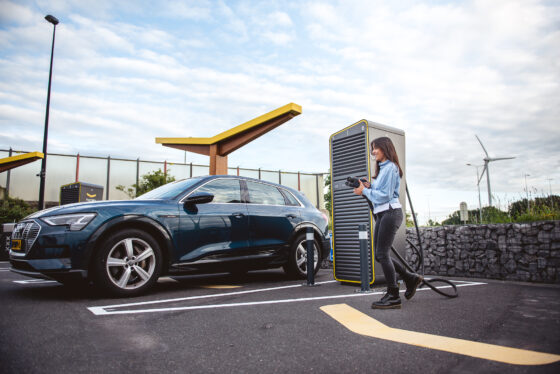Scientists from Case Western Reserve University have made a major breakthrough in developing zinc-sulfur rechargeable batteries, offering a safer,...
Vous n'êtes pas connecté
- English
- Français
- عربي
- Español
- Deutsch
- Português
- русский язык
- Català
- Italiano
- Nederlands, Vlaams
- Norsk
- فارسی
- বাংলা
- اردو
- Azərbaycan dili
- Bahasa Indonesia
- Հայերեն
- Ελληνικά
- Bosanski jezik
- українська мова
- Íslenska
- Türkmen, Түркмен
- Türkçe
- Shqip
- Eesti keel
- magyar
- Қазақ тілі
- Kalaallisut ; kalaallit oqaasii
- Lietuvių kalba
- Latviešu valoda
- македонски јазик
- Монгол
- Bahasa Melayu ; بهاس ملايو
- ဗမာစာ
- Slovenščina
- тоҷикӣ ; toğikī ; تاجیکی
- ไทย
- O'zbek ; Ўзбек ; أۇزبېك
- Tiếng Việt
- ភាសាខ្មែរ
- རྫོང་ཁ
- Soomaaliga ; af Soomaali
Rubriques :
 Maroc - TECHXPLORE.COM - RSS news feed - 11/Dec 16:26
Maroc - TECHXPLORE.COM - RSS news feed - 11/Dec 16:26
Key additives improve zinc-based rechargeable batteries for safer energy
Rechargeable lithium-ion batteries power everything from electric vehicles to wearable devices. But new research from Case Western Reserve University suggests that a more sustainable and cost-effective alternative may lie in zinc-based batteries.
Articles similaires
Goodbye lithium? New sodium-ion batteries promise cheaper, greener energy
Lithium-ion batteries power most of our devices and electric cars, but they come with challenges. Lithium is expensive, hard to source, and limited in...
New material for sodium-ion batteries brings affordable, sustainable future within grasp
While lithium-ion batteries have been the go-to technology for everything from smartphones and laptops to electric cars, there are growing concerns...
Porous electrode design could boost all-solid-state battery performance and lifespan
Batteries have become an integral component of modern technology. Lithium-ion batteries (LIBs) can be found virtually everywhere, from handheld...
Renewables research benefits from $9.87 million ARC Discovery grants
The Queensland University of Technology has been awarded $9.87 million from the federal government's funding arm, the Australian Research Council's...
Beyond batteries: Researchers bring body-heat powered wearable devices closer to reality
A QUT-led research team has developed an ultra-thin, flexible film that could power next-generation wearable devices using body heat, eliminating the...
Beyond batteries: Researchers bring body-heat powered wearable devices closer to reality
A QUT-led research team has developed an ultra-thin, flexible film that could power next-generation wearable devices using body heat, eliminating the...
Scientists develop body-heat powered film for next-gen wearable devices
A team of researchers, led by Queensland University of Technology (QUT), has created an ultra-thin, flexible film that can convert body heat into...
Thermal evaporation emerges as a promising strategy for scalable solid-state battery production
Solid-state lithium batteries are promising energy storage solutions that utilize solid electrolytes as opposed to the liquid or gel electrolytes...
ANWB: ‘Electric car now costlier than ICE model in the Netherlands’
Electric vehicles are widely regarded as a cost-effective alternative to gasoline-powered cars, but that trend has officially reversed in the...
Les derniers communiqués
-
Adobe Brings Conversational AI to Trillions of PDFs with the New AI Assistant in Reader and Acrobat
Adobe - 21/02/2024
-
Laura Frigenti takes the Helm as Chief Executive Officer of the Global Partnership for Education
Global Partnership for Education - 05/12/2022
